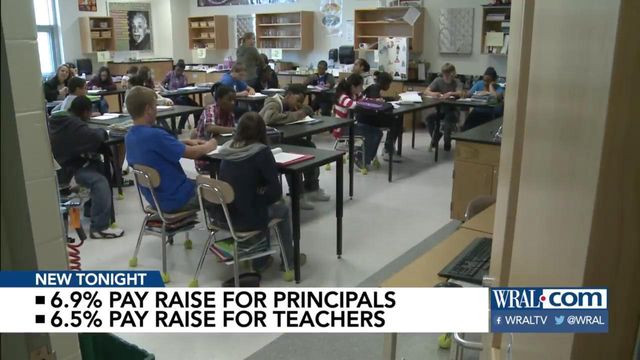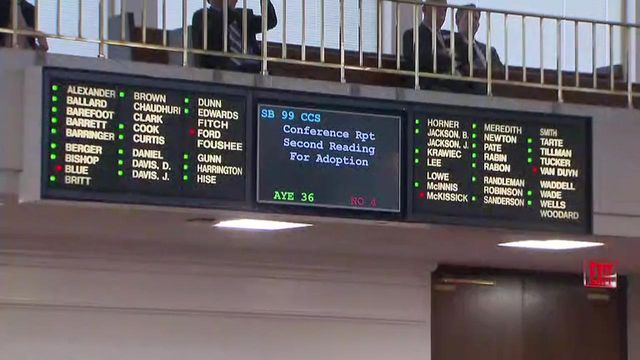@NCCapitol
Teacher pay and 11 other things the new state budget does
Beyond teacher pay: Not quite a dozen things in this budget that may not make headlines.
Posted — UpdatedBy Travis Fain, WRAL statehouse reporter
RALEIGH, N.C. — The new state budget released late Monday by legislative Republicans does more than $23.9 billion worth of stuff.
We'll be unpacking it for days and probably finding things worth noting long after the General Assembly votes the plan through later this week.
Republican majority leaders made a number of announcements ahead of time about the budget on teacher pay, state employee raises, rural broadband grants, disaster funding, school safety and GenX contamination in surface and ground water.
Now, here are 11 other things we noticed on our first read through the budget:
The budget soups up transformative project funding within the Department of Transportation, boosting the amount DOT can spend on infrastructure for any one project from $5 million to $10 million and increasing the cap for five years worth of projects from $10 million to $100 million. The transformative projects program has more to it than just the infrastructure work, and it's the economic development program being used to lure Apple and others to North Carolina.
The budget takes about $50 million in new federal money for early childhood programs and uses it to backfill state funding moved to other parts of the budget. Advocates and Gov. Roy Cooper's administration have been buzzing about this one for a while, complaining that funding that could have been used to increase services is used instead to free up state funding.
There's language allowing cities to use property tax revenues to fund K-12 schools and authorizing charter schools to request funding directly from cities. This comes after a proposal to allow towns in Mecklenburg County to opt out of the local school system and run their own charter schools instead.
It increases the state's virtual charter school pilot program from four years to eight. The pilot was slated to end next year, and the two schools in the pilot have struggled with low performance rankings and high numbers of student withdrawals.
Up to $2 million would go toward environmental remediation work at the Charlotte Motor Speedway on a 2:1 match. That's one state dollar for every $2 in non-state money.
It increases the lab fee for the Newborn Screening Program from $44 to $128 and empowers a state commission to approve other increases as needed to cover the cost of adding new conditions to the screening protocols.
It prepares to move the Division of Motor Vehicles headquarters on New Bern Avenue in downtown Raleigh. The budget language orders everyone out of the building by October 2020. It also authorizes a move out of Wake County, deleting language that requires the division commissioner to keep an office in Raleigh and replacing that with, "Wake County, North Carolina, or a surrounding county."
There's $7.2 million for a new State Highway Patrol pay plan that will boost starting trooper pay to $44,000 and increase top salaries to just over $64,200. The average salary increase for troopers will be about 8 percent.
The budget also creates a new forgivable loan program for the $36,000 it costs to train troopers. They'll work off $1,000 of that debt for every month they serve. If they leave early, they or their new employers will typically owe the state the difference and up to 10 percent interest.
This budget would also create a Teaching Fellows-type program to get more people into law enforcement careers. Called the "North Carolina Criminal Justice Fellows," this program would provide forgivable loans of up to $3,152 a year to send people interested in a criminal justice career to college. It could have up to 200 recipients in a given year.
There's $3 million for a new UNC Board of Governors task force to analyze science and technology facility needs at University of North Carolina campuses.
Related Topics
• Credits
Copyright 2024 by Capitol Broadcasting Company. All rights reserved. This material may not be published, broadcast, rewritten or redistributed.






